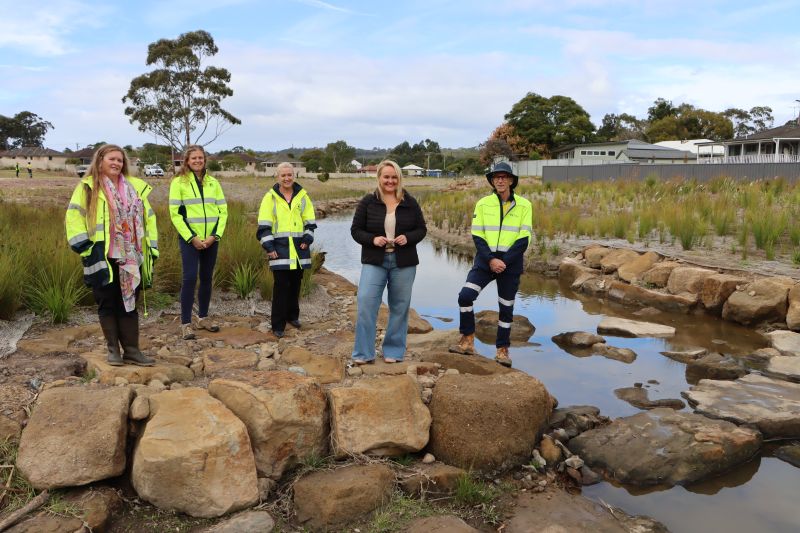City of Newcastle has planted more than 53,000 native trees, grasses and shrubs alongside a 350m stretch of Ironbark Creek as part of a $3 million project to rehabilitate another section of Newcastle's largest tidal creek.
The work targeted a section of creek between Croudace Road, Elermore Vale and Lewis Street Oval, Wallsend and included the placement of almost 4,000 tonnes of sandstone rock, three new stormwater pipe outlet upgrades and more than 3,300m2 of adjacent recreation area returfed.

Lord Mayor Nuatali Nelmes said the benefits of this project will be seen long into the future.
"Since 2011, City of Newcastle has invested more than $8 million into this multi-stage, award-winning rehabilitation program to renaturalise and improve the flow of water in Ironbark Creek," Cr Nelmes said.
"During the past 12 years the project has delivered 3,162m of rehabilitated creek lines in the Ironbark Creek catchment, while revegetation activities have seen hundreds of thousands of native shrubs and grasses transform previously weedy and eroding creek banks.
"This project demonstrates City of Newcastle's commitment to both environmental rehabilitation and wider flood mitigation planning, ensuring that the creek and floodplain behave in more predictable ways during major flood and rain events.
"Ironbark Creek is our largest tidal creek. It carries water from a 13,000-hectare catchment, conveying the runoff from our local bushland, roads and suburbs down to the internationally significant coastal wetland systems and Hunter River.
"There are many benefits that come from completing projects like the rehabilitation of Ironbark Creek and I want to congratulate everyone who was involved in bringing it together."
The Ironbark Creek project uses nature-based solutions to rehabilitate the waterway from its headwater in Rankin Park through Wallsend Park, to where the creek flows into the Hexham Wetlands, south of Minmi Road.
The work is designed to stabilise the creek bed, reduce bank erosion, improve the quality of water and access to the creek for maintenance works. In addition, by reducing pests and weeds while reinstating a native wildlife corridor, the project helps improve the amenity of the waterway for residents and the local community, and our urban biodiversity.






